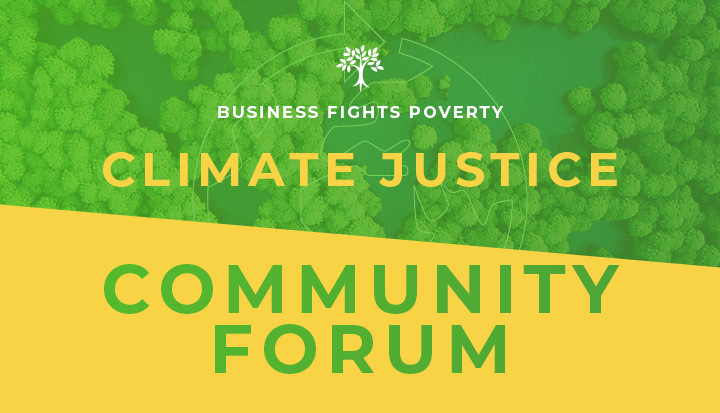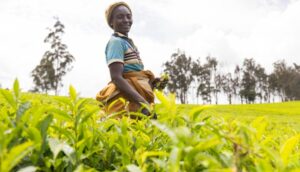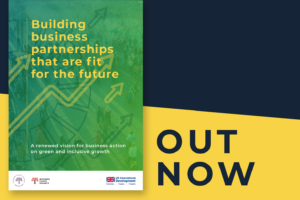In September 2015, the international community is expected to agree an ambitious post-2015 development agenda (the Sustainable Development Goals, SDGs) to succeed the Millennium Development Goals (MDGs), aiming to combine economic, social and environmental objectives in a balanced manner. At the same time there will be a financing for development conference in Addis Ababa in July 2015 which will discuss the means of implementation framework. A range of reports released this year are helping to frame the discussions. In August, the Intergovernmental Committee of Experts on Sustainable Development Financing (ICESDF) discussed its recommendations. In September the New Climate Economy reported on green growth. This week’s OECD Development Co-operation Report is the latest to discuss financing for development. This blog reviews the progress made so far in the context of the ongoing work for the European Report on Development (ERD) 2014/15 and concludes by formulating three questions we should be asking ahead of the Addis conference.
First let’s look at some history. The discussion that framed the implementation of the 2002 Monterrey Consensus on financing for development focused primarily on mobilising resources for development, and less on the effective use of finance. The approach was to estimate ‘finance needs’ to meet the MDGs, which we know are subject to significant variation under different models and underlying assumptions (including policy context considerations). The focus of the international community was on raising levels of ODA for specific social goals, which whilst vital also distracted the international community from considering the range of flows and complementary policies for a much broader sustainable development transformation.
So what do the reports say this time around? The OECD Development Co-operation Report released this week provides an important overview of the various sources of finance available for sustainable development financing and asks where the financial resources for the SDGs will come from. Policy considerations are woven throughout the report, although a more practical analysis of policies in the context of reaching SDGs would have merited further elaboration. A key contribution of the report is in recognising the importance of “catalytic use of ODA”, for example, in raising domestic resources (through domestic tax reform) or using development finance institutions to mobilise other resources including private sources. It also includes an innovative (finance) target of a 2% of GDP for international co-operation on global public goods.
The ICESDF report reviews four types of finance that can be geared towards development – domestic, international, public and private. There is a brief overview of finance needs but warns that “quantifying needs is complex and necessarily imprecise”. Key areas of policy reform are presented for each of the categories of finance. These are a useful first step in discussions on a beyond-finance implementation agenda. This analysis could have been strengthened by drawing out lessons from country case studies and other evidence on the policies towards creating an enabling environment for sustainable development.
The New Climate Economy report, rather than starting from the point of view of finance flows, instead focuses on the goal of achieving lasting economic growth whilst also tackling the risks of climate change. The world will be undergoing transformation over the next 15 years and beyond, so how do we shape our economies in light of climate change? The role for finance and policy is woven into a storyline on raising resource efficiency, innovation and infrastructure. After transformations in labour and capital productivity, the next step will be to transform resource efficiency through effective policy and investment decisions (see also the ERD 2011/12 addressing resource efficiency). When dealing with infrastructure, the report further argues that: “Investment is hardly constrained by a shortage of savings”. After all some US$ 17 trillion of global investment is financed each year and part of this could be directed towards delivering the SDGs, including through infrastructure investment. The crucial question then relates to the effective mobilisation and use of finance flows through appropriate policy.
In preparing the ERD 2014/15 on finance and other means of implementation in a transformative post-2015 context, we turn the financing agenda up-side down. Instead of focusing on the supply side of finance, we take the transformation objectives (economic, social and environmental) as a starting point, and then examine how finance fits in. Further we focus on the effective use and mobilisation of finance. This approach targets four types of “enablers”, without which sustainable development is not feasible: institutions, resources (such as infrastructure or human and natural capital), technology and networks. The research examines the links between finance and policies in developing enablers for sustainable development.
This approach yields interesting insights. For example, ERD evidence from Tanzania suggests that whilst there was private sector interest in renewable energy, the complementary policies were not in place to scale-up investments in renewable energy. By contrast, a better regulatory framework in Kenya has allowed faster diffusion of renewables. In Mauritius, appropriate capacity and institutions (including the Joint Economic Committee that strengthened links between state and business) to design and implement a strategic agenda attracted the finance necessary for economic transformation. Hence, the enabling environment was the catalyst for finance, rather than the other way around. For more on these case studies, see our article from last month.
Global policies, rather than finance in isolation, are also essential for sustainable development transformation. For example, the removal of fossil fuel subsidies (at US$ 550 billion in 2010) and an international agreement on climate change at the United Nations climate conference in Paris in December this year would reduce the need for additional finance. If a global agreement was reached on trade facilitation, this would be worth just as much as the value of Aid for Trade which is currently being directed to developing countries. Better global banking rules would also help to avoid future financial crises and enhance the volumes and stability of international private finance.
Taking this together, we argue that the international community should be asking the following three priority questions ahead of Addis Ababa:
- Until recently, we have been asking “where is the finance coming from”? Instead we should be asking how can countries individually and globally create the conditions (through policies and enablers) to attract the various finance flows available for achieving sustainable development objectives? The Tanzania, Kenya and Mauritius are just some of the ERD examples showing that complementary policies matter from mobilisation and effective use of finance.
- Over the last decade we have been focused on mobilising ODA to fill estimated finance gaps, but instead we need to be asking how can international public finance best contribute to the enablers of transformative change? For example, ODI work in Uganda suggests that renewable energy investments by DFIs can transform the domestic economy and create jobs.
- Globally, caution is required before jumping on an aid-for-global-public-goods- bandwagon. Finance (e.g. beyond-aid) can also contribute, and a priority question is how can a reformed international system (e.g. trade, climate, tax rules) contribute?
The ERD 2014/15 is asking these and other questions and is gathering evidence towards answering them. In the meantime you can contribute your views now on the blog – or stay tuned in the lead up to the Addis conference!










